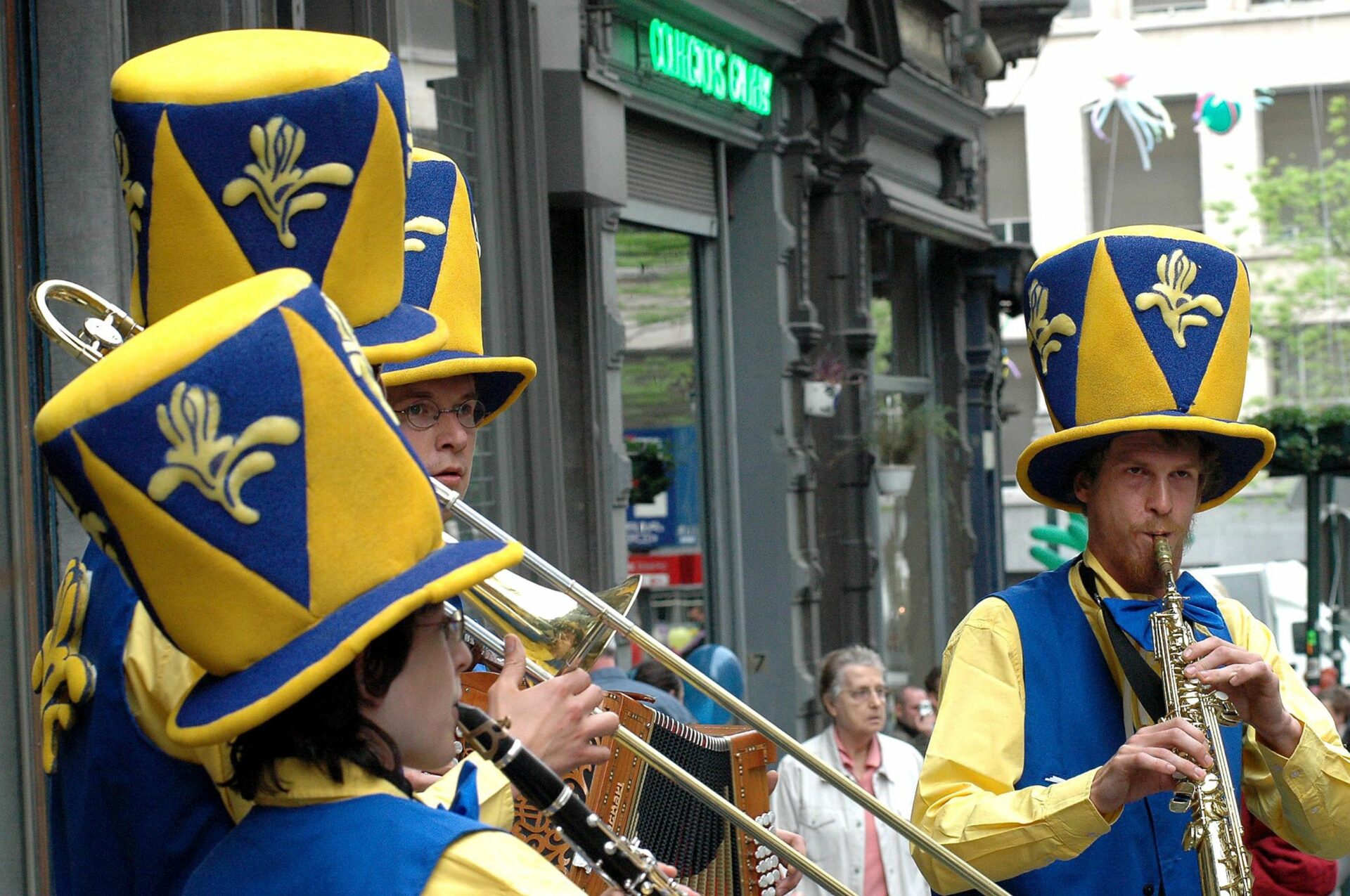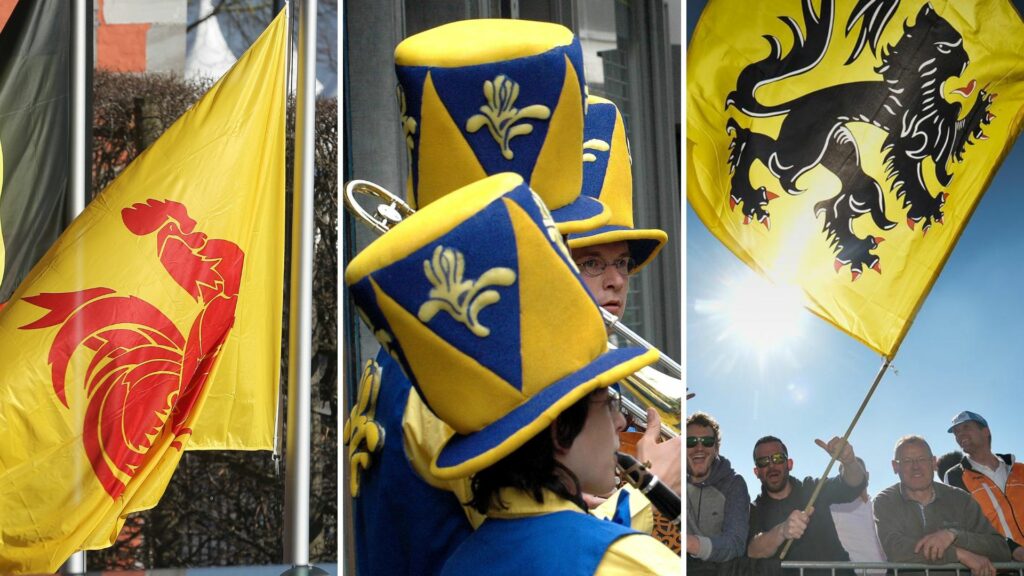The Brussels-Capital Region will come alive this weekend with various concerts, activities, food trucks and more on the occasion of the region's 34th birthday – marked by the annual Iris Festival.
But though this weekend is for Brussels, each of Belgium's regions has its own day. It may be a bit of a headache trying to remember which regional day is happening when, but this arrangement also means that the country has three times as many special occasions to celebrate!
Brussels Iris Festival
The first regional holiday of the year is the Iris Festival with the official feast day being on 8 May. As the name suggests, the festivities celebrate the blooming of the iris flower – the symbol for Brussels.
8 May also happens to be the day of Brussels' patron saint Saint Michael the Archangel, as well as Victory in Europe Day (VE-Day) which commemorates the victory of democracy over fascism and marks the anniversary of the Allied victory over the Nazi regime in 1945.
In the Capital Region, calls have long been made for the day to be made an official paid holiday (as it is in Flanders and Wallonia) and their dream might soon become a reality. The Federal Government's coalition agreement states that the regions will be given the opportunity to turn their public holiday into a paid one without an additional budgetary cost.
The majority parties in the Brussels Parliament are eager to take advantage of this proposal and have issued a resolution to this effect. "As a legal paid holiday, 8 May can become a day on which we celebrate our democracy, our freedoms and rights and think about how we can improve our free society."
Activities such as street festivities, free concerts and a food truck festival are being held in the coming days to celebrate the feast day (which falls on a Monday this year).

Brussels' Iris Festival. Credit: Belga / Jacques Collet
Day of the Flemish Community
Next on the calendar is the Day of the Flemish Community, which takes place on 11 July. The celebration commemorates the victory of the Count of Flanders over the King of France outside Kortrijk in 1302, known as the 'Battle of the Golden Spurs' (the Guldensporenslag in Dutch).
On the Flemish holiday and the days leading up to it, various cities and municipalities fly their Flemish flags and organise a number of 11 July celebrations, folk festivals and performances. On the day itself, the Flemish government presents awards to deserving Flemish people.
Symbolism takes centre stage during the holiday, with the Flemish lion and Flanders' coat of arms on display and the anthem resounding across the region.
Related News
- What does Belgium celebrate on its National Day, and how?
- Why Brussels wants to make 8 May a paid holiday again
In the past, the traditional 11 July celebrations were central to the experience of the regional holiday, but in recent years the Flemish holiday has grown into a large-scale popular festival. In 2022, over 1,000 local street and neighbourhood initiatives took place on the Flemish holiday, often (partly) subsidised by the Flemish government.
The Flemish media are also always out in full force, with Flemish-funded VRT co-organising a big party in Antwerp's Grote Markt (main square). Traditional celebrations often also take place at Brussels' City Hall.

Day of the Flemish Community. Credit: Belga
Day of the Walloon Region
Last but certainly not least is Wallonia, with the Day of the Walloon Region taking place on the third Sunday of September. On this day, the whole region commemorates Wallonia's participation in the Belgian Revolution of 1830.
In the city of Namur, the Walloon capital, the Fêtes de Wallonie (or 'Wallos' for short) take place over an extended third weekend of September, starting on Thursday and ending on Monday evening. The festival usually attracts tens of thousands of people – not just from Namur but from the entire region.
During these five days of festivities, various activities are organised, such as traditional stilt fights, a fair and an open-air mass in the city centre, to name just a few. There are also gastronomic events and markets serving up traditional Walloon treats such as avisance (Belgium's answer to sausage rolls) and lots of the local alcohol, Peket.

Fête de la Fédération Wallonie-Bruxelles. Credit: Belga
Belgium's National Day
The National Day: a day in which all regions of Belgium unite, which takes place annually on 21 July. While Belgians have existed since the days of Julius Caesar around 2,000 years ago, the independent State of Belgium was established on 4 October 1830.
However, the National Day does not celebrate this day but rather commemorates the day on which Leopold I swore allegiance to the new Belgian Constitution and became the first King of Belgium on 21 July 1831.
Every year, the streets of Brussels are packed with proud citizens as they watch the military and civilian parade during the National Day ceremony. Concerts, activities and fireworks are annual crowd-pleasers accompanied by food trucks and bars set up for the festivities.

